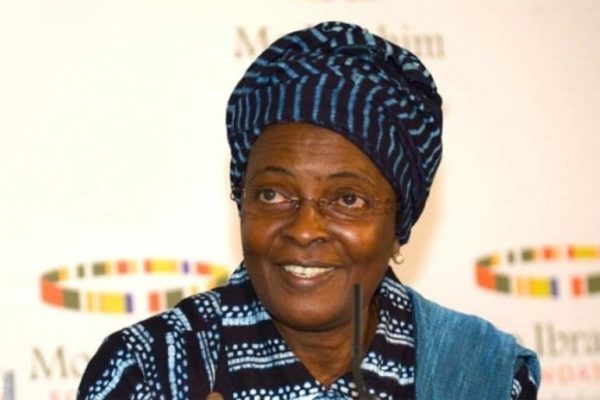Published on the theme of the 2063 Agenda and the Sustainable Development Goals (SDGs), the 2019 Africa Governance Report is based on data from the Mo Ibrahim Index of Governance in Africa. The report focuses on the need for African states to improve the availability of data to achieve development goals. Ms. Aïcha Bah Diallo, spokesperson for the Mo Ibrahim Foundation, former Minister of Education of Guinea, adviser to the NGO / UNESCO Liaison Committee for Girls’ Education in Africa, answers Financial Afrik’s questions.
Why have this report focused on achieving the Sustainable Development Goals (SDGs) and the African Union Agenda 2063?
These two reports have many points of convergence in terms of objectives, targets and indicators. And countries need to report on what they have achieved. We must remember that these two reports share three things namely, the establishment of inclusive socio-economic development, secondly effective and accountable institutions, and thirdly a sustainable environment. Countries were asked to link the 2063 Agenda with the 2030 Agenda in their development programs to ensure consistency in their implementation. And at that moment, they will report on the progress made.
What makes the 2019 report on governance in Africa special?
The report of the Mo Ibrahim Foundation on Governance in Africa 2019 provides insights on the progress made in achieving both agendas. It highlights not only the efforts that have been made, but also the efforts to be made. And here we found that there is really a data deficit that characterizes almost all African countries. Without reliable data, the progress made and the efforts still to be made can not be evaluated effectively. So this report is timely for Africa, which must begin the last decade of the 2005 agenda, that is to say the objectives of sustainable development. Africa is also halfway through the first major decennial of the agenda of implementation of the 2063 agenda. And that’s what’s really important, so this report, we really had to do it.
It is also important to remember that the Mo Ibrahim Index on Governance in Africa is the most comprehensive data on public governance in Africa, so to make this report, we used the other reports you know. It is precisely because of this report that we can see that there is a strong correlation between the scores obtained in terms of global governance and the results of Africa in terms of development. The index indicates the importance of public governance to ensure sustainable development.
What makes data so important in governance?
The report, this time around, is based on priorities to be addressed in the different areas that have been targeted in both agendas, ie access to quality education, health and nutrition, inclusion of women and youth, prosperity and economic opportunities, security and strong institutions.
We have found that in terms of education, health, nutrition for example, the scores are really very low. In terms of gender for example, it is true that there is progress in terms of public representation but at the level of the index still the indicator remains very low. As you will have noticed, there is always violence against women, and that is where the problem lies. The scores are therefore very low. When we look at the training level, it does not match the expectations of the job market.
If you do not have data, how can you qualify what you have, it’s absolutely unthinkable. You can not develop a policy and implement it if you do not have data. Since you develop these policies and implement them for the people, you have to have the statistics.
Take for example the case of ghost children, that is, children who were not registered at birth in local governments, it is as if they did not exist. So if you do not look at these issues to give the child a fundamental right to exist, you will never be able to quantify your population, and these are examples that make the data absolutely necessary.



